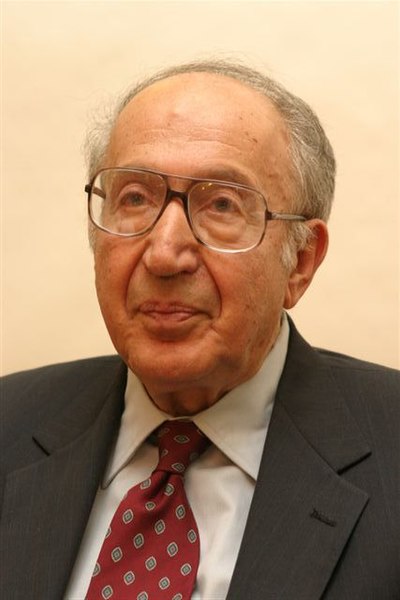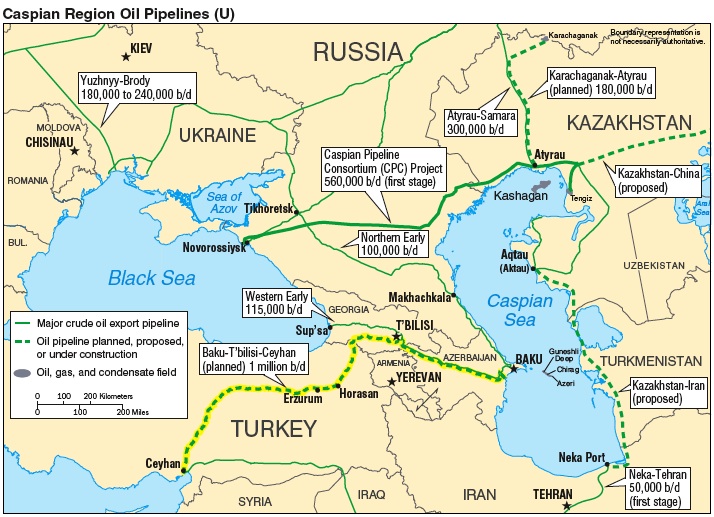Re: The Rise of the Russian Empire: Russo-Armenian Relations
A senior Russian diplomat warned the United States on Thursday that the threat from Pakistan if extremists came to power in Islamabad would be far greater than the potential danger from Iran. Russia says there is no evidence that Iran is trying to build nuclear weapons but says Pakistan, a U.S. ally with nuclear arms, is a more likely threat.
"If extremists were to come to power there, than there would be a real threat," said the diplomat, who spoke on condition of anonymity at a briefing on U.S.-Russian relations. He said there had been no direct discussions between Washington and Moscow about the current crisis in Pakistan, which President George W. Bush's administration sees as a key ally in the battle against al Qaeda and the Taliban. Security has deteriorated in Pakistan since July, when commandos stormed Islamabad's Red Mosque to crush an armed Islamist movement. Since then nearly 800 people have been killed in militant-linked violence, half of them by suicide attacks.
Russia's stormy ties with the United States dipped further this week when Russia's parliament voted to suspend a key arms treaty between the Cold War foes, after rows over Washington's missile defence plans. The diplomat said Moscow talks last month with U.S. Secretary of State Condoleezza Rice and Defense Secretary Robert Gates on the missile shield were productive. "The American ministers expressed a number of innovative and bold ideas," he said. "We hope the forthcoming meeting in Washington will give us their suggestions," said the diplomat, adding that Moscow expects it will receive the proposals in a formalised document.
Emphasising the strong economic links with the United States, he said trade between the two countries had doubled to $25 billion and bilateral negotiations on Russia's World Trade Organisation membership were completed. "Our goal is to conclude multilateral negotiations on the WTO before the end of the year," he said. U.S. concerns with human rights were often selective, he said, especially in former Soviet republics. "They often apply a variety of standards to different states, based on their interests, especially in the post-Soviet space," said the diplomat.
Source: http://in.reuters.com/article/southA...30405320071108
Russia diplomat warns of threat from Pakistan chaos


A senior Russian diplomat warned the United States on Thursday that the threat from Pakistan if extremists came to power in Islamabad would be far greater than the potential danger from Iran. Russia says there is no evidence that Iran is trying to build nuclear weapons but says Pakistan, a U.S. ally with nuclear arms, is a more likely threat.
"If extremists were to come to power there, than there would be a real threat," said the diplomat, who spoke on condition of anonymity at a briefing on U.S.-Russian relations. He said there had been no direct discussions between Washington and Moscow about the current crisis in Pakistan, which President George W. Bush's administration sees as a key ally in the battle against al Qaeda and the Taliban. Security has deteriorated in Pakistan since July, when commandos stormed Islamabad's Red Mosque to crush an armed Islamist movement. Since then nearly 800 people have been killed in militant-linked violence, half of them by suicide attacks.
Russia's stormy ties with the United States dipped further this week when Russia's parliament voted to suspend a key arms treaty between the Cold War foes, after rows over Washington's missile defence plans. The diplomat said Moscow talks last month with U.S. Secretary of State Condoleezza Rice and Defense Secretary Robert Gates on the missile shield were productive. "The American ministers expressed a number of innovative and bold ideas," he said. "We hope the forthcoming meeting in Washington will give us their suggestions," said the diplomat, adding that Moscow expects it will receive the proposals in a formalised document.
Emphasising the strong economic links with the United States, he said trade between the two countries had doubled to $25 billion and bilateral negotiations on Russia's World Trade Organisation membership were completed. "Our goal is to conclude multilateral negotiations on the WTO before the end of the year," he said. U.S. concerns with human rights were often selective, he said, especially in former Soviet republics. "They often apply a variety of standards to different states, based on their interests, especially in the post-Soviet space," said the diplomat.
Source: http://in.reuters.com/article/southA...30405320071108







Comment